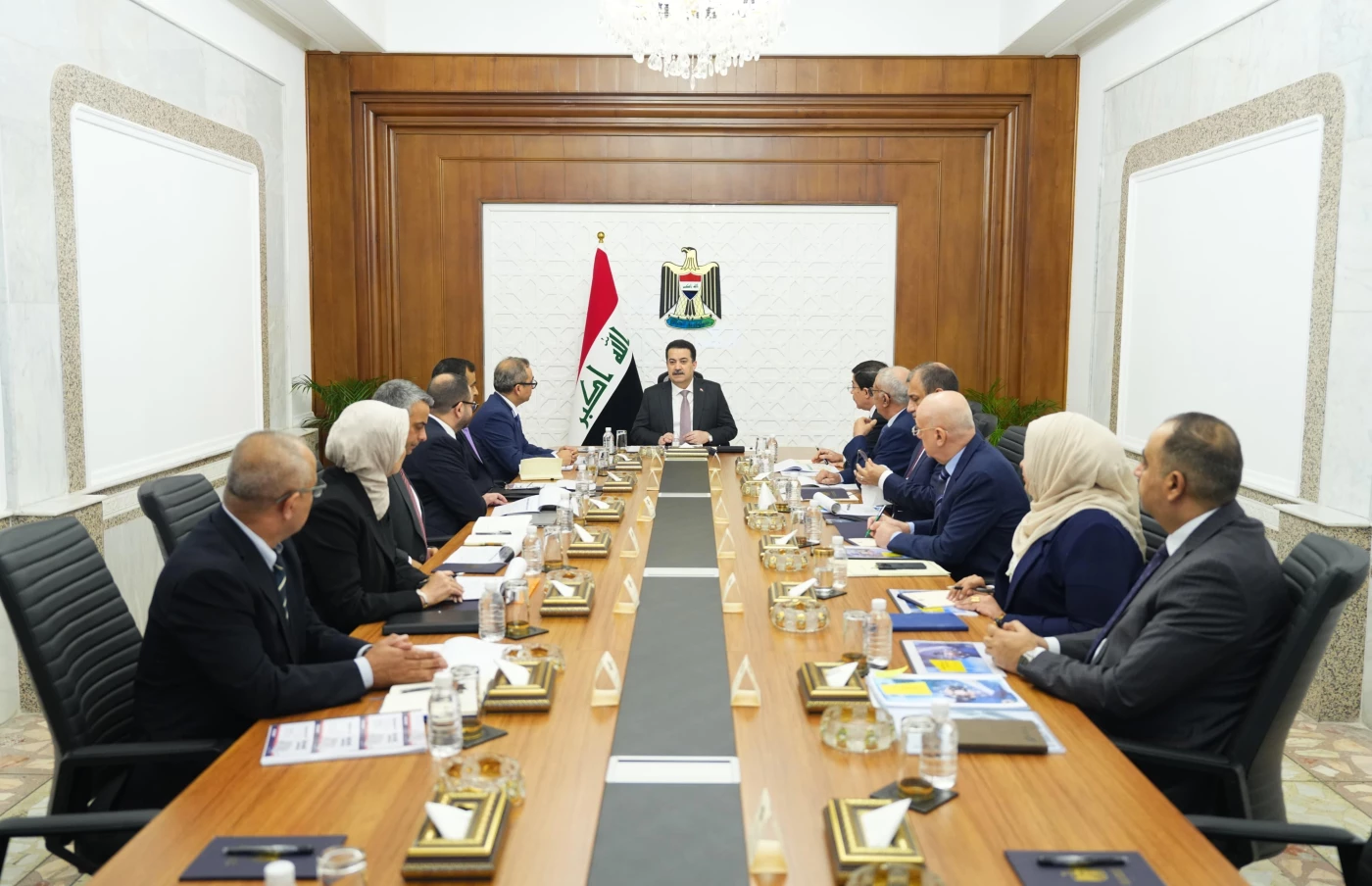DUBAI, UAE - Iraqi Prime Minister Mohammed Shia’ al-Sudani on Thursday underscored the importance of reforming the banking sector to enhance public trust and encourage cooperation with local and foreign investors.
Sudani chaired a meeting focused on efforts to revamp the country's government-owned banks, with representatives from global consulting firm Ernst & Young in attendance. During the meeting, the firm presented recommendations for the restructuring of Rafidain Bank, Iraq’s largest state-owned bank.
The proposed reforms include changes to Rafidain’s legal status, capital structure, and operational strategy. Additionally, a new consultant will be appointed to help the bank meet global banking standards.
The recommendations will be submitted to the Ministerial Council for the Economy, which will then refer them to the cabinet for approval, according to a statement from Sudani’s office.
Sudani emphasized that the restructuring of Rafidain Bank is a key initiative in the government’s broader banking reform agenda. He noted that the project is receiving special attention, with close monitoring of reports from relevant authorities, including a dedicated committee overseeing the restructuring process.
The prime minister said the goal is to create a banking institution that meets international standards, restores public confidence, and fosters stronger partnerships with both domestic and international investors.
In late September, PM Sudani held discussions with the US Deputy Treasury Secretary Wally Adeyemo during the United Nations General Assembly, underscoring Iraq’s ongoing efforts in financial and banking reform.
According to Iraqi state media, the talks highlighted Iraq’s commitment to implementing international compliance standards and enhancing anti-money laundering and counter-terrorism financing measures.
The Iraqi government has partnered with Ernst & Young to restructure state-owned banks, including Rafidain and Rasheed, and has contracted American consulting firm Oliver Wyman to develop the private banking sector.
These initiatives align with broader reform plans aimed at modernizing Iraq’s financial infrastructure. The US Treasury reaffirmed its support for these reforms and praised Iraq’s efforts to diversify its economy, noting the six percent growth in the non-oil sector as a positive outcome of the government’s strategies.



 Facebook
Facebook
 LinkedIn
LinkedIn
 Telegram
Telegram
 X
X


